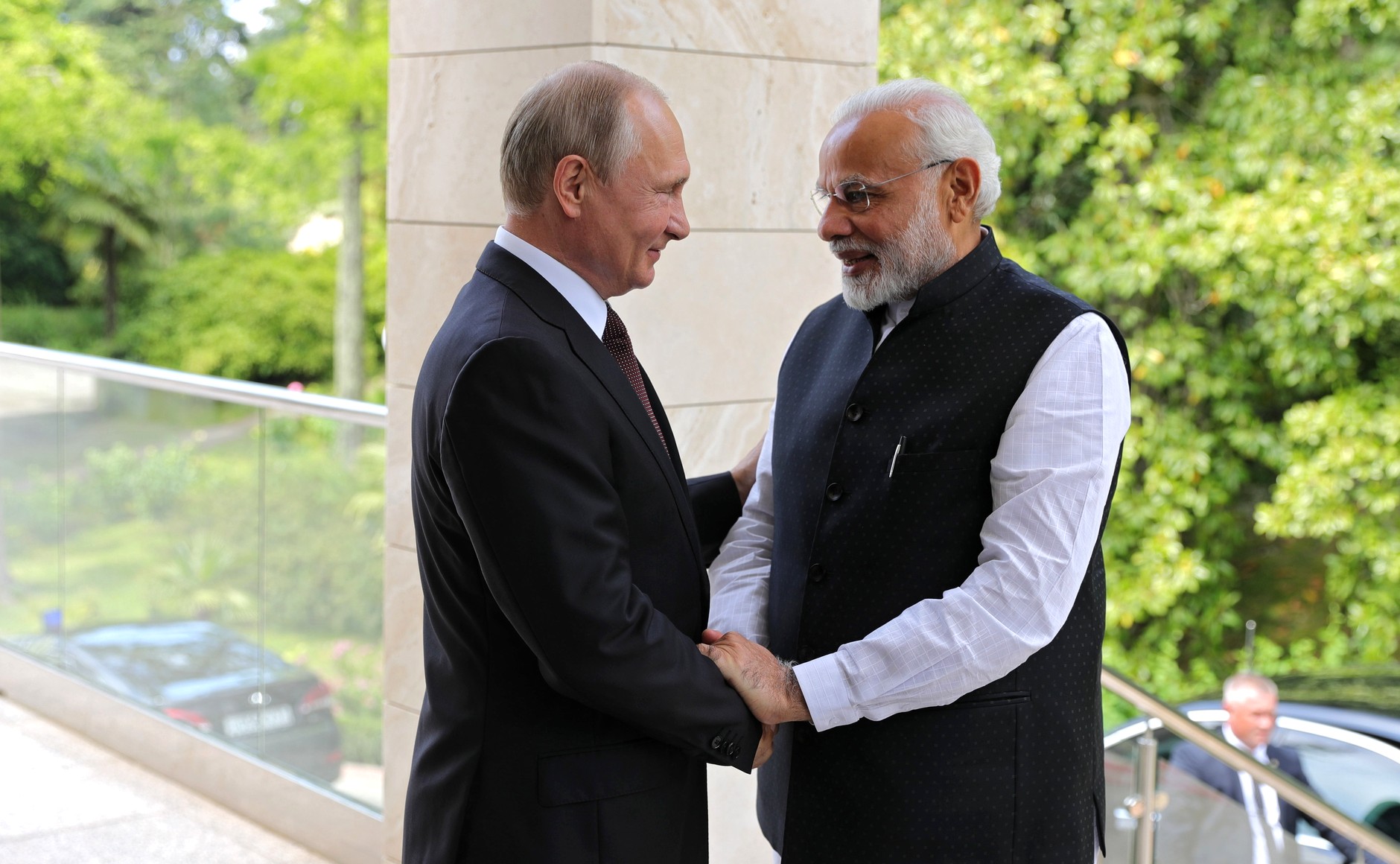Because India flirts with Putin and disappoints Biden

India is offering an economic backing to Russia to circumvent sanctions. Here because. The article by Tino Oldani for Italy Today
Vladimir Putin's military aggression by Russia against Ukraine is reshaping the geopolitical map globally. NATO (30 countries led by the United States) is now more united than ever in support of Kiev. Ditto the European Union. On the other hand, Putin's Russia was isolated, after the UN General Assembly voted by an overwhelming majority the resolution condemning Moscow for the invasion of Ukraine with 141 votes in favor, five against (Russia, Belarus, Korea. North, Eritrea, Syria) and 35 abstentions, including China and India. According to American analysts, the abstention of the latter country, the second in the world by number of inhabitants (1.3 billion) after China (1.4 billion), surprised and disappointed the US president, Joe Biden. . The reasons are more than one.
Only a few years ago, in 2018, Narendra Modi's India had contributed to revitalizing in an anti-China key the dialogue-alliance in the Indo-Pacific called Quad (Quadrilateral Security Dialogue), stipulated in 2007 together with the United States, Australia and Japan, with the aim of countering Beijing's influence in the area, considered the new beating heart of the world economy. But now, with the UN abstention vote on the Russian invasion of Ukraine, India has closed the door to the Quad, it is in fact alongside China, although it is its rival for a thousand territorial reasons, and even offers an economic bank for Russia to circumvent the economic sanctions imposed by the US and the European Union.
How this bank works has been explained by the Financial Times : the Central Bank of India (Reserve Bank of India), in agreement with the government of Narendra Modi, would have taken steps to allow some Indian banks with branches in Russia, and Russian banks with branches in India, to circumvent Russia's expulsion from the Swift payment system by exchanging rubles for rupees. A measure supported by the Indian association of exporting companies (200 thousand members), which saw the isolation of Russia from the West as an opportunity to successfully enter a new market. The goal would be to grow trade between India and Russia from the current $ 10 billion to $ 30 billion a year within four years.
Both countries would win. Currently, Russian exports are about double that of India. Russia mostly buys pharmaceuticals, tea and coffee, and sells oil, fertilizers and, above all, weapons to India. Between 2016 and 2020 India pledged to purchase $ 6.6 billion worth of Russian weapons, covering 60-70% of its military equipment. In Russian supplies there are weapons of all kinds: S-400 defense systems, Sukhoi Su-30 fighters, Mig 29, helicopters, Antonov transport aircraft, T-29 and T-90 tanks (the same used in Ukraine), Kalashnikov assault rifles, plus a rented nuclear submarine.
In the past, Modi's India was a strong arms buyer of the United States, but then it changed its strategy both in politics and in arms: thus it went from the traditional Indian "non-alignment", introduced by Nerhu, to the current "autonomy. strategic ", which places independence and self-sufficiency at the fore and makes India free to have partnerships with any country. Hence the ties both with the United States and with Russia, most recently especially with the latter.
In addition to arms purchases, oil purchases also played a part in India's approach to Moscow. India imports 80% of its oil needs, of which Russia has covered 2-3% so far. But after the recent spike in world market prices, Moscow offered the Modi government oil at a discount of 20%, which was immediately accepted, which will bring India's energy dependence on Moscow to 8% in a few years.
The mediation role played by Russia in the territorial dispute between India and China relating to their borders, which has lasted for years, should not be overlooked. The first talks between the two countries on the matter took place in Moscow before the invasion of Ukraine, with Putin in the role of mediator to avoid an armed conflict. A story that explains many things, including India's abstention vote at the UN on the invasion of Ukraine.
"No one should be surprised that India continues to stay with Russia," the Dane Somdeep Sen, a geopolitical scholar and lecturer at the University of Roskilde, in Denmark, wrote on the Al Jazeera website. “India wants to maintain a positive relationship with Russia because it needs Moscow's support to resolve its territorial conflicts with its neighbors, especially China. New Dehli also wants to continue to enjoy Russia's economic and military support, as Russia has repeatedly supported India at the UN on issues like Kashmir, and many Indians feel like it's now their turn to return the favor. " .
According to reports, the US president, Joe Biden, would have called India's position on the invasion of Ukraine "a bit shaky", with an abstention vote at the UN that surprised him not a little.
A verbal flip that reveals political disappointment, but nothing more. On the other hand, a dutiful self-criticism would also have been opportune: it is urgent that US diplomacy run for cover as soon as possible in the Indo-Pacific if it does not want "the largest democracy in the world", as India likes to call itself, to end up steadily from the shore to the two most hostile autarchies towards the democracies of the West.
This is a machine translation from Italian language of a post published on Start Magazine at the URL https://www.startmag.it/mondo/india-russia-stati-uniti/ on Sat, 26 Mar 2022 07:37:36 +0000.
